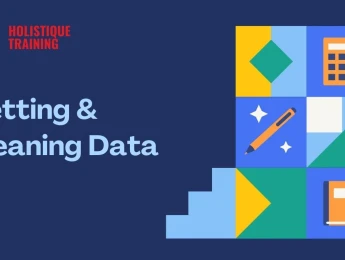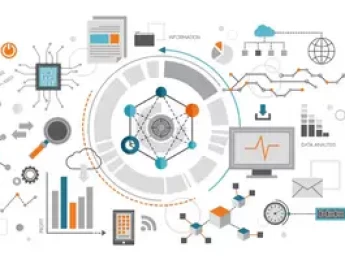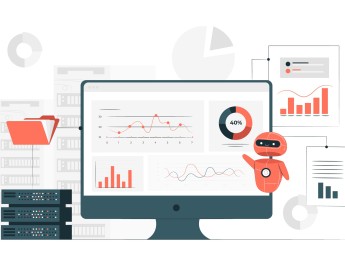Business Intelligence (BI) analytics are pivotal in empowering finance professionals with the tools and insights necessary to make informed and strategic financial decisions. In the dynamic landscape of finance, where data is abundant but must be sifted through effectively, BI analytics offer a transformative solution.
These tools enable finance professionals to collect, process, and analyse vast amounts of financial data, uncovering valuable patterns, trends, and correlations. They comprehensively view a company's financial health, performance, and potential risks.
Through BI analytics, finance professionals can generate accurate forecasts, identify cost-saving opportunities, optimise resource allocation, and assess the impact of various financial strategies. These analytics enhance the accuracy of financial data and information and also empower finance professionals to make strategic decisions to drive business success based on accurate metrics.
These data-driven decisions can increase an organisation's competitiveness in an already saturated market and allow business owners and professionals to make more forward-thinking changes or continuous improvements that shape the industry's future.
Upon completion of this course, participants will be able to:
- Understand financial insights within the framework of enhancing business processes.
- Utilise the capabilities inherent in business intelligence and analytics systems.
- Formulate key performance indicators encompassing both financial and non-financial metrics.
- Employ the tools and methodologies of predictive analytics for insightful forecasting.
- Create compelling graphics for visualising data and crafting impactful infographics.
This course is designed for anyone responsible for analysing data analytics or making financial decisions based on accurate data to drive a company forward. It would be most beneficial for:
- Business Owners
- Business Analysts
- Data Analysts
- Financial Managers
- Chief Financial Officers
- Operations Managers
- Accountants
- HR Managers
- Payroll Specialists
- Project Managers
This course uses a variety of adult learning styles to aid full understanding and comprehension. Participants will view presentations and videos to understand the key data required to make business decisions in various scenarios and take part in a group discussion regarding the importance of data analytics in making changes for the future.
They will work in groups to review several analytical systems and understand how technology could enhance the data collection and reporting within their own business. Finally, they will discuss their learnings with the group and talk through the types of analytics they intend to use going forward to make strategic business decisions and explain how they feel this change will allow their organisation to be a trendsetter in their industry.
Day 5 of each course is reserved for a Q&A session, which may occur off-site. For 10-day courses, this also applies to day 10
Section 1: Understanding Your Business Model
- Identifying key data sources for business model analysis.
- Collecting and processing relevant operational data.
- Utilising customer data for insights into market behaviour.
- Analysing financial data for profitability and cost structures.
- Incorporating data on supply chain and logistics for efficiency.
Section 2: How Data Can Change Your Business Direction
- Implementing predictive analytics for future business directions.
- Evaluating the impact of data on competitive intelligence.
- Developing a data-driven culture within the organisation.
- Challenges and ethical considerations in data-driven decision-making.
Section 3: The Purpose & Principles of Data Collection
- Legal aspects of data collection in the UK.
- Importance of informed consent in data collection.
- Types of data and their relevance in research.
- Data collection methods and tools.
- Ensuring data quality and reliability.
- Privacy and confidentiality in data collection.
- Data protection regulations in the UK.
- Impact of data collection on research outcomes.
Section 4: Statistical Vs Predictive Analytics
- Fundamental principles of statistical analytics.
- Key concepts in predictive analytics.
- Differences between statistical and predictive analytics.
- Applications of statistical analytics in decision-making.
- Role of predictive analytics in forecasting and modelling.
- Statistical models and their limitations.
- Machine learning algorithms in predictive analytics.
- Importance of data preprocessing in both approaches.
- Evaluating the accuracy and reliability of statistical models.
- Real-world examples of statistical and predictive analytics.
Section 5: Visualising Data for Stakeholders
- The power of Infographics.
- Importance of data visualisation in conveying insights to stakeholders.
- Types of data visualisations and their applications.
- Choosing the right visualisation for different types of data.
- Principles of effective data visualisation design.
- Tools and software for creating impactful visualisations.
Section 6: Technology & Data
- Historical perspective on the intersection of technology and data.
- Role of data in shaping technological advancements.
- Impact of developing technology on data collection and storage.
- Big data and its implications for technological innovation.
- Integration of emerging technologies (e.g., AI, IoT) with data systems.
- Challenges and opportunities in managing and analysing vast datasets.
- Security and privacy concerns in the era of advanced technology.
Section 7: Managing Change in a Data-Fuelled Environment
- Developing a change management strategy for data-driven projects.
- Building a data-driven culture within an organisation.
- Addressing resistance to change in the context of data transformation.
- Leadership skills for managing change in data-centric environments.
- Communicating the benefits of data-driven change to stakeholders.
Upon successful completion of this training course, delegates will be awarded a Holistique Training Certificate of Completion. For those who attend and complete the online training course, a Holistique Training e-Certificate will be provided.
Holistique Training Certificates are accredited by the British Assessment Council (BAC) and The CPD Certification Service (CPD), and are certified under ISO 9001, ISO 21001, and ISO 29993 standards.
CPD credits for this course are granted by our Certificates and will be reflected on the Holistique Training Certificate of Completion. In accordance with the standards of The CPD Certification Service, one CPD credit is awarded per hour of course attendance. A maximum of 50 CPD credits can be claimed for any single course we currently offer.
- Course Code PF1-140
- Course Format Classroom, Online,
- Duration 5 days













